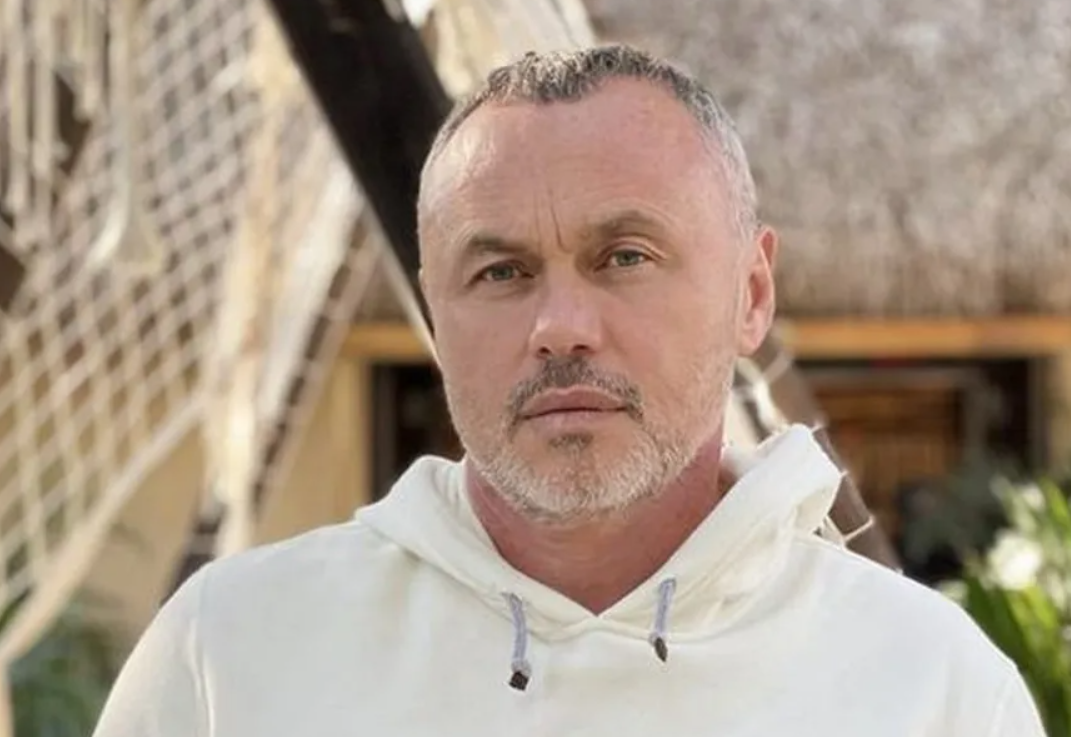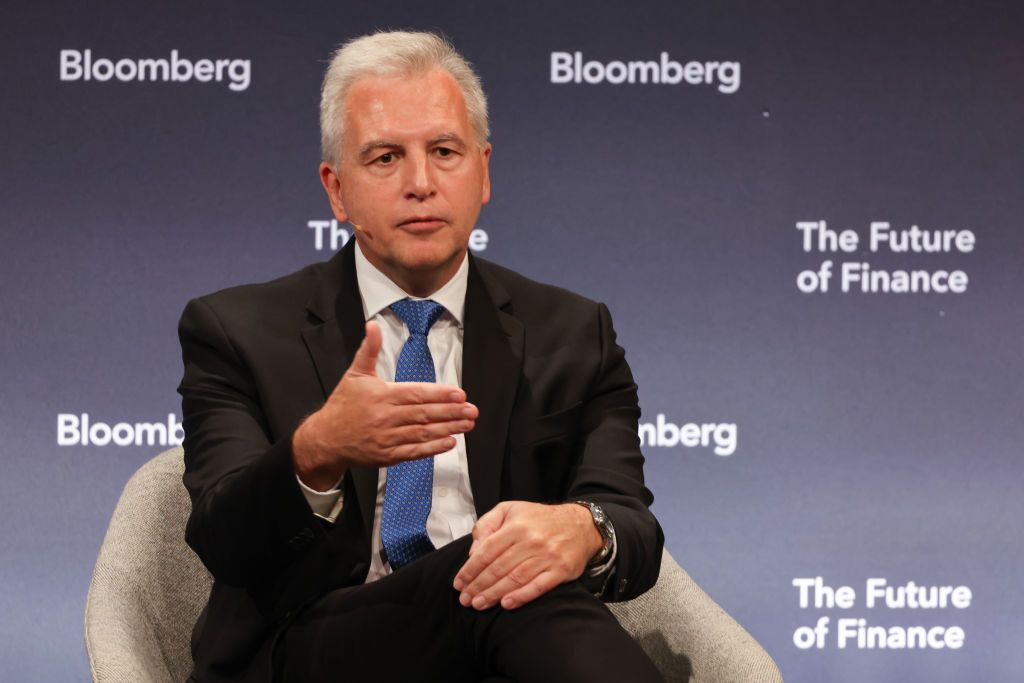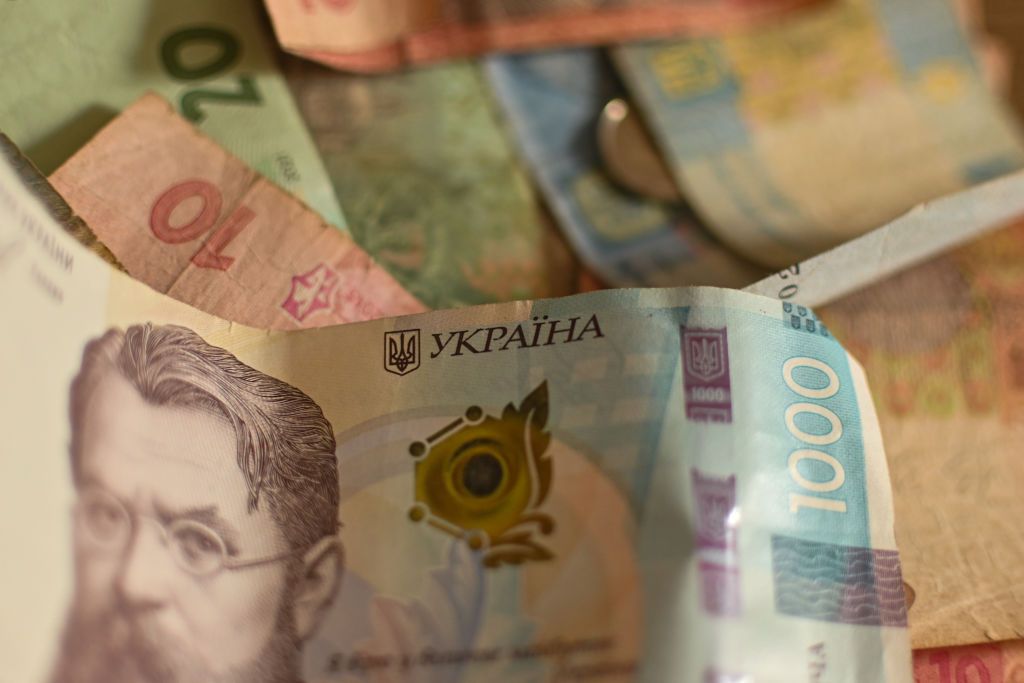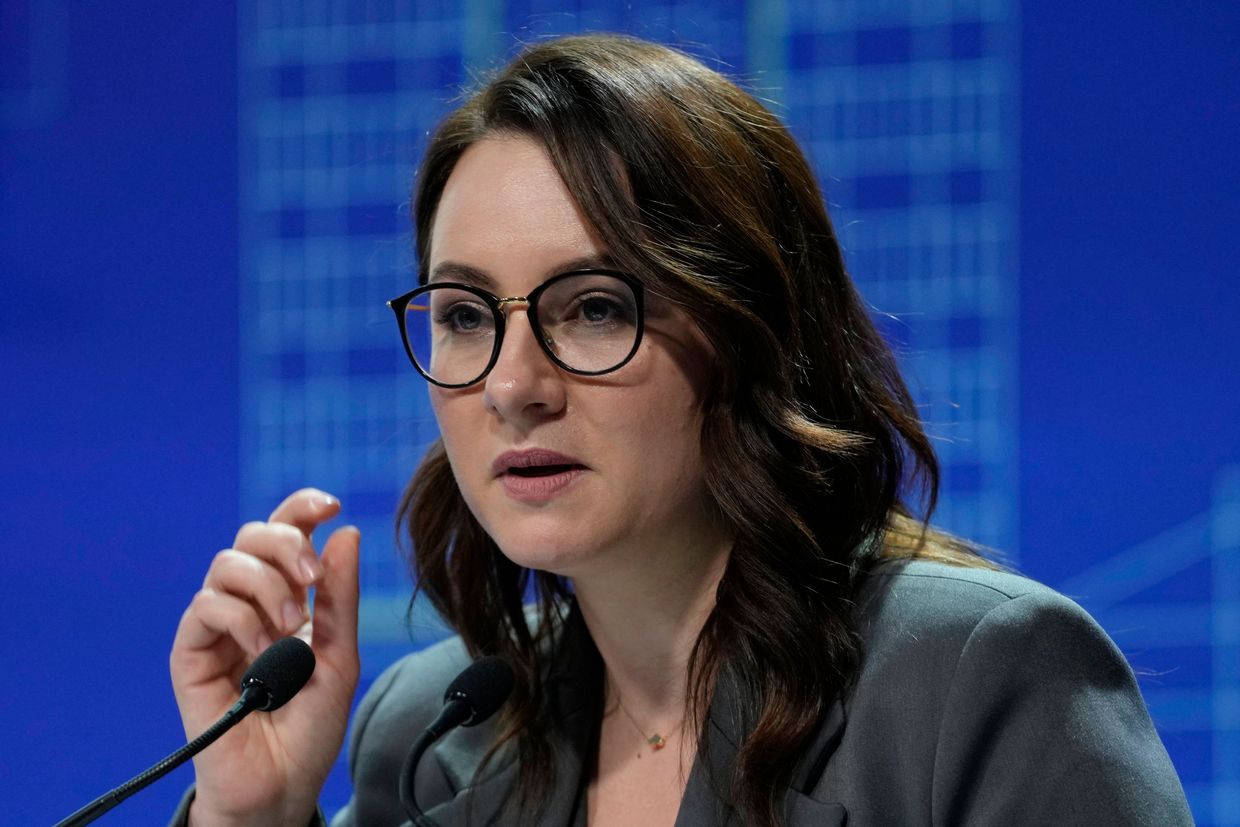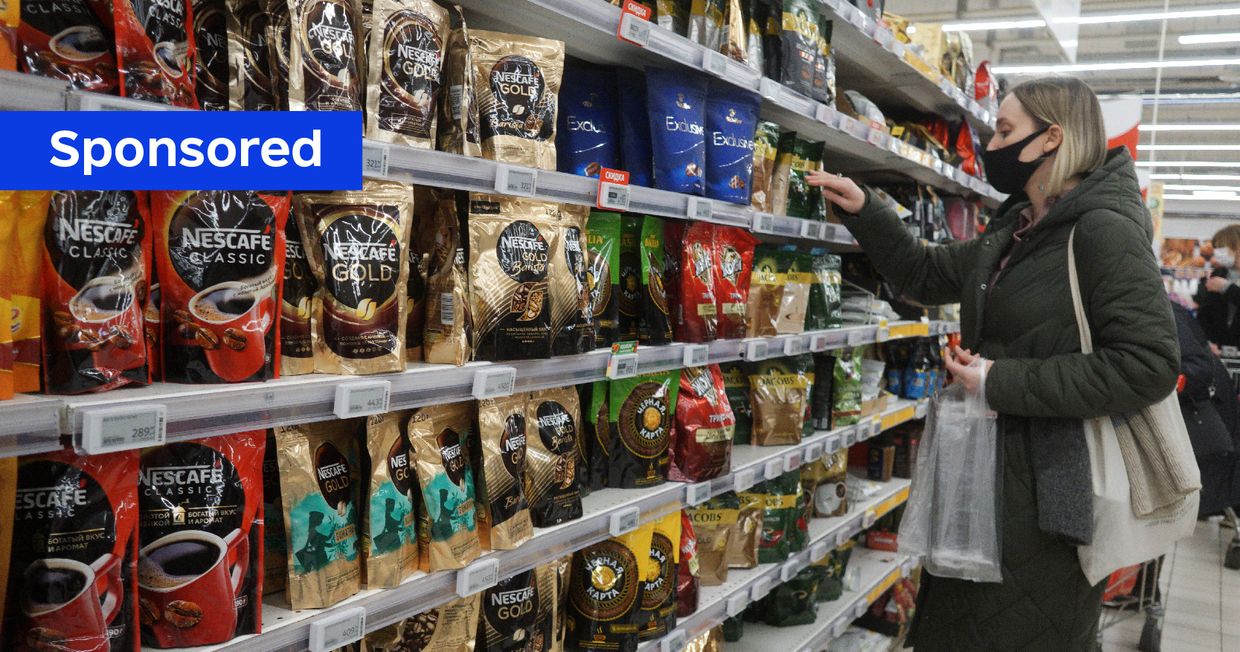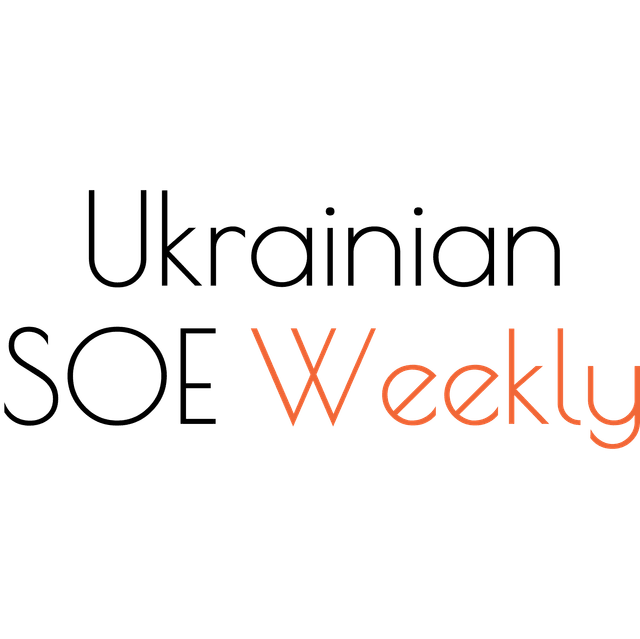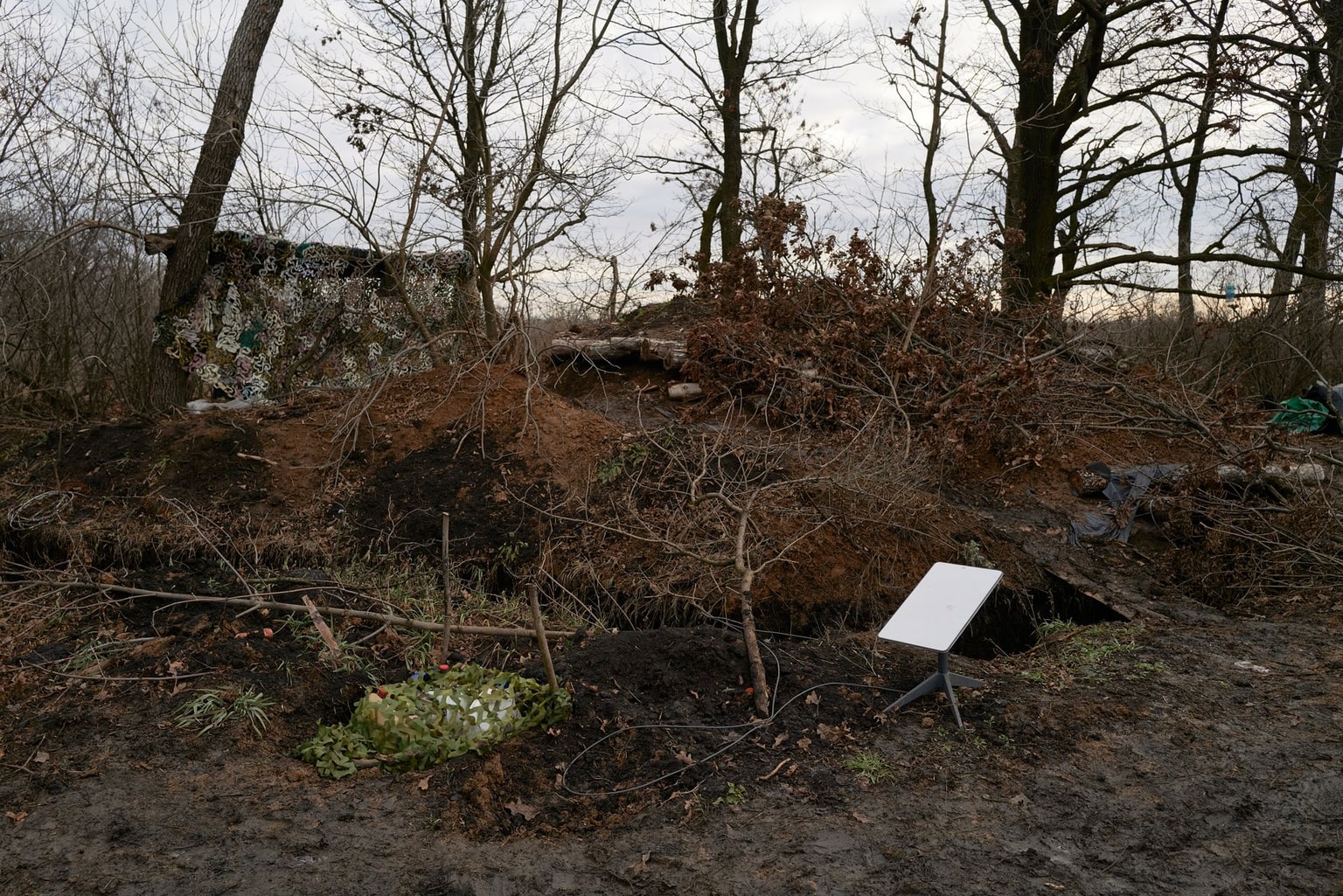Ukraine state-owned enterprises weekly — Issue 114

Editor’s Note: This is issue 114 of Ukrainian State-Owned Enterprises Weekly, covering key events in the domain of SOEs, state-owned banks, and privatization in 2023. The Kyiv Independent is reposting it with permission.
Ukrainian SOE Weekly is an independent weekly digest based on a compilation of the most important news related to state-owned enterprises (SOEs) and state-owned banks in Ukraine. The contents of this publication are the sole responsibility of the editorial team of the Ukrainian SOE Weekly.
Corporate governance of state-owned banks
Oschadbank and Ukreximbank had no supervisory boards for almost seven months. As we reported in December 2023 (see Issue 113), even though the Cabinet of Ministers appointed the new independent members of Ukreximbank’s supervisory board on May 30, the same ordinance appears to have blocked the board’s work.
Under the ordinance, independent members serve for three years from the date on which all independent members officially assume their roles.
The Cabinet’s ordinance implies that independent members of the supervisory board can only start performing their duties after each of them receives approval from the National Bank of Ukraine (NBU). However, the ordinance does not address a situation in which any of candidates fails to secure NBU approval. This led to the seven-month absence of a supervisory board at Ukreximbank to date.
In SOE Weekly’s Issue 90, we reported that according to the Cabinet’s ordinance, the new independent board members, appointed on May 30, were Sylvia Gansser-Potts, Razvan Munteanu, Robert Kossmann, Engin Akçakoca, and Rostyslav Futalo.
Dominique Menu, who served as an independent member on the previous board, would continue in that role, according to the Cabinet’s decision. Also, Viktoriya Strakhova and Yuriy Butsa retained their positions as state representatives on the bank’s supervisory board.
Later, in Issue 99, we reported that on Aug. 4, the Cabinet appointed Oleksandr Bevz as a state representative to Ukreximbank’s supervisory board, nominated by the Verkhovna Rada’s Committee on Finance, Taxation, and Customs Policy.
According to Ukreximbank’s website, Strakhova, Butsa, and Bevz are current state representatives on the board. No independent members are listed on the website.
The Law on Banks and Banking says that a bank’s supervisory board member takes office after NBU approval. According to the NBU Regulation on Licensing, the approval procedure of a bank’s senior officers can last up to 90 days from the day the bank submits his/her complete package of documents to the NBU. No such approval is required in case of reappointment.
That is, Menu, Strakhova, and Butsa did not need approval from the NBU and could take up their positions immediately starting on May 30.
The rest of Ukreximbank’s new board members – Munteanu, Kossmann, Gansser-Potts, Futalo, and Bevz – were approved by the NBU in August 2023.
Thus, as of Aug. 29, eight out of nine members of Ukreximbank’s supervisory board were approved by the NBU and could take up their positions, which made it possible to form a competent supervisory board.
As of Dec. 5, Engin Akcakoca had been awaiting approval for 190 days.
The delay in NBU’s approval during such a long period may indicate the presence of some problems that prevented the NBU from approving Akcakoca.
On Dec. 6, during the VI International Corporate Directors Forum, Andriy Pyshnyy, the NBU Governor, said that Akcakoca’s application was withdrawn (i.e., the procedure for its approval was then suspended).
This suggested that Akcakoca was unlikely to become a member of Ukreximbank’s supervisory board, and therefore the Cabinet’s ordinance (in its May 30 version) was unlikely to ever be implemented. The remaining five independent members would be hindered from assuming their roles, preventing the establishment of an operational supervisory board as such.
On Dec. 5, the Cabinet amended its ordinance, replacing Akcakoca with Nick Tesseyman. However, according to the NBU’s database, Nick Tesseyman had not received approval at the time of this writing, causing further delays in the commencement of the work of Ukreximbank’s supervisory board.
It is unclear why the Cabinet worded its ordinance in such a way that Ukreximbank has been without a competent supervisory board for seven months so far, although the board had everything it needed to start its work at least as of Aug. 29. Also, it is not clear why the Cabinet has not yet made appropriate changes to its ordinance nor launched the work of Ukreximbank’s board, especially considering the recent amendment of the ordinance to appoint Nick Tesseyman.
As we reported in Issue 85, in April 2023, the Cabinet of Ministers approved the new supervisory board of another state-owned bank, Oschadbank.
Later, in November 2023 (Issue 111), we wrote that Oschadbank’s supervisory board started its work and elected Volodymyr Lavrenchuk as its new chair. Oschadbank was left without a supervisory board for almost seven months due to an identical Cabinet ordinance.
Corporate governance of SOEs
Ukroboronprom transformed into a joint-stock company called UDI, new CEO appointed. As we wrote in June 2023, the State Concern Ukroboronprom was dissolved and replaced by a joint-stock company called Ukrainian Defense Industry (UDI).
The concept of corporate governance reform and conversion of Ukroboronprom, including its target model and detailed action plan, was drafted by Andriy Boytsun, Oleksandr Lysenko, and Dmytro Yablonovskyi, members of the SOE Weekly team, as well as the international law firm Kinstellar, in March 2020. For a discussion of these documents, see the OECD Review of the Corporate Governance of State-Owned Enterprises in Ukraine.
We also reported that Ukroboronprom’s CEO Yuriy Husiev resigned, and the Cabinet of Ministers appointed Herman Smetanin as the CEO of newly established UDI. See SOE Weekly’s Issue 95 for more detail.
Energoatom’s corporatization continues. In February 2023, we reported that the Verkhovna Rada passed Draft Law No. 8067 on the corporatization of Energoatom on Feb. 6.
According to the Rada’s Energy Committee, establishing good corporate governance of SOEs is one of Ukraine’s obligations under the Association Agreement with the EU.
Energoatom remains 100% owned by the state, specifically the Cabinet of Ministers. Its shares cannot be privatized or divided.
As we wrote in Issue 79, corporate governance reform of Energoatom was among the government’s top priorities for 2023. According to the Cabinet of Ministers’ Priority Action Plan, Energoatom was to be converted into a joint-stock company by May 2023. The nuclear power operator was also slated to receive a competitively selected supervisory board with an independent majority. The deadline was November 2023.
In Issue 80, we reported that President Volodymyr Zelenskyy signed a law on the corporatization of Energoatom on March 17.
As we wrote in Issue 86, the Cabinet approved the conversion of Energoatom into a joint-stock company to comply with the law. The Cabinet established a commission for this purpose. It is chaired by Oleksii Sobolyev, Deputy Economy Minister, and includes Petro Kotin, Energoatom’s CEO, Farid Safarov, Deputy Energy Minister, and another eight members.
As we reported in Issue 113, on Dec. 1, the Energy Ministry announced an agreement with the head-hunter firm hired to find Energoatom a supervisory board – Executive Search Ukraine LLC (doing business as Amrop). See Issue 113 for more detail.
For a detailed account on the corporatisation of Energoatom, see SOE Weekly’s Issues 41, 53, 58, 69, 74, 79, 80, 86, and 113.
Ukraine meets the IMF’s structural benchmarks on corporate governance reform of GTSOU. In September 2023 (see Issue 104), we reported that the Cabinet of Ministers decided to transfer the corporate rights of the Gas Transmission System Operator of Ukraine (GTSOU) from the previous owner, Main Gas Pipelines of Ukraine (MGU), directly to the Energy Ministry.
This Cabinet’s decision was made in accordance with Law No. 3293-IX on the merger of MGU and GTSOU which introduced the legal framework to reform GTSOU.
Law No. 3293-IX was known earlier as Draft Law No. 9311-1-d. That bill built on its earlier version, No. 9311-1, which had been proposed by MPs Maksym Khlapuk (Holos faction), Yaroslav Zheleznyak (Holos), and other MPs. Draft Law No. 9311-1 was drafted by two members of the SOE Weekly team, Oleksandr Lysenko and Andriy Boytsun. See Issue 104 for more detail.
As we also wrote in Issue 104, on Sept. 26, the Economy Ministry announced the competitive selection to find three independent members for GTSOU’s supervisory board.
On Nov. 1, GTSOU reported that the Cabinet of Ministers approved four out of five candidates for its pending supervisory board.
GTSOU has also published the updated charter of the company on its website, approved by the Energy Ministry on Oct. 23 2023. According to the new charter, the supervisory board should be appointed by the ministry, acting in its capacity as the company’s General Meeting.
The ministry is also required to consult with the National Energy and Utilities Regulatory Commission (NEURC) and the Energy Community Secretariat on the board candidates, but the opinions are not binding.
In addition, according to YouControl, the Energy Ministry officially became the new owner of GTSOU, while the previous owner, MGU, was dissolved.
In this way, Ukraine has met two of the IMF’s structural benchmarks related to GTSOU (see below).
As we wrote in SOE Weekly’s Issue 97, according to one structural benchmark in the IMF’s current program, a new GTSOU charter, developed and agreed with the NEURC in consultation with the Energy Community Secretariat, should have been adopted by the end of July 2023.
A second GTSOU-related structural benchmark in the IMF’s program required that the company’s new supervisory board should be selected and appointed via a competitive, transparent, and merit-based nomination procedure by the end of October 2023.
Note that, according to the charter, GTSOU’s supervisory board must consist of five members, three of whom should be independent. The Cabinet of Ministers did not explain the reason why the fifth member of the supervisory board — a state representative — had not been selected yet.
Prime Minister Denys Shmyhal reportedly favored the candidacy of Viktor Pynzenyk as a state representative on GTSOU’s board. Pynzenyk previously had the same role on MGU’s board.
Anticorruption bodies press charges for potential offenses in SOEs
Kobolyev’s bonuses case sent to court. As we reported in Issue 71, on Jan. 19, the National Anti-Corruption Bureau of Ukraine (NABU) and Specialized Anti-Corruption Prosecutor’s Office (SAPO) charged former Naftogaz CEO Andriy Kobolyev with illegally awarding himself Hr 229 million ($6 million), which was part of a bonus given to the Naftogaz team for their victory against Russia’s Gazprom in Stockholm’s court of arbitration in 2018.
In SOE Weekly’s Issue 99, we reported that on Aug. 9, the High Anti-Corruption Court (HACC) decided to extend the Hr 229 million bail for another two months and left procedural obligations, including pre-trial restrictions, of Kobolyev unchanged.
As we wrote in Issue 104, on Sept. 25, HACC removed the electronic ankle monitoring device from Kobolyev and halved his bail to the amount already paid, Hr 107 million ($2.8 million). See Issue 104 for more detail.
As we reported in Issue 113, on Nov. 29, SAPO announced that it submitted abuse of office charges against Kobolyev. On Nov. 30, at the first preparatory hearing on Kobolyev’s charges, HACC granted the SAPO prosecutor’s motion and extended his procedural duties until Jan. 30. See Issue 113 for more detail.
For an extended background on the Kobolyev case, see SOE Weekly’s Issues 71, 72, 73, 77, 78, 79, 83, 84, 88, 91, 99, 104, and 113.
For a detailed analysis of this case from a corporate governance perspective, see series of columns by SOE Weekly team members Andriy Boytsun, Oleksandr Lysenko, and Dmytro Yablonovskyi: Are Kobolyev’s bonuses a threat to corporate governance reform? Part 1, Part 2, Part 3, Part 4, and Part 5.
Sennychenko, former head of SPFU, accused of stealing Hr 500 million ($13 million) from UMCC and OPZ, and laundering Hr 10 billion ($263 million). As we reported in Issue 80, in March 2023, NABU and SAPO said that they exposed a criminal group run by the former head of the State Property Fund of Ukraine (SPFU), Dmytro Sennychenko.
Sennychenko headed the SPFU from September 2019 to February 2022. He filed his resignation letter in November 2021, but the Verkhovna Rada only approved his resignation on Feb. 17, 2022.
According to NABU, the criminal group headed by Sennychenko misappropriated over Hr 500 million from Odesa Portside Plant (OPZ) and United Mining and Chemical Company (UMCC) throughout 2019-2021, but it did not end there. The criminal group’s members allegedly received Hr 2 billion in benefits while controlling the Odesa plant, NABU stated. See Issue 80 for more detail.
As we reported in Issue 83, in April 2023 the suspects in this case, including Sennychenko, were placed on the wanted list.
In November 2023, we wrote that NABU and SAPO updated suspicions against all members of the criminal group allegedly led by Sennychenko. They are now also suspected of legalizing criminal proceeds of over Hr 10 billion.
According to NABU, Sennychenko’s accomplices included:
- a person close to the head of the SPFU (co-organizer) — the NABU did not name the suspect but, according to the media, it is Andriy Hmyrin;
- an adviser to the head of the SPFU — Yuriy Lypko;
- two acting CEOs of OPZ at different times — Mykola Parsentyev and Mykola Synytsia;
- the acting CEO of UMCC — Artur Somov;
- two owners of the company that won the auction for the supply of natural gas to OPZ – Oleksandr Horbunenko and Volodymyr Kolot, co-owners of Agrogaztrading; and
- two other accomplices – Pavlo Prysyazhnyuk, investment banker (according to Censor.Net’s sources, Prysyazhnyuk was Sennychenko’s “curator” from the authorities), and another defendant.
We are not aware of either Sennychenko or other suspects publicly responding to the above charges.
On Dec. 12, NABU and SAPO served a notice of suspicion to Denys Kudin, former First Deputy Head of SPFU. He also served on the supervisory board of OPZ.
As we reported in Issue 75, Ukrnafta’s CEO Serhiy Koretskiy wrote that Denys Kudin, who has recently stepped down as First Deputy Economy Minister, was appointed to head Ukrnafta’s department for strategy, development, and government relations.
Kudin worked with Koretskiy for the WOG chain of petrol stations in 2013-2018. Kudin has been the First Deputy Economy Minister since November 2021. Before that, he was First Deputy Head of SPFU.
Kudin confirmed that he had received the notice of suspicion. He stated that he would prove his innocence in a legal manner.
SOEs’ challenges
Ukrenergo resists Russian missile and drone attacks on its energy facilities. In 2023, Russia continued to launch missile and drone attacks against Ukraine’s energy infrastructure.
Ukrenergo reported about the mass attacks during the heating season (in January, February, and March 2023).
On Sept. 21, Russia launched the first missile attack in six months since March. See Issue 103 for more detail.
After every Russian mass missile attack on Ukraine’s vital infrastructure in autumn 2022 and winter 2023, there were emergency outages, lasting for days due to the ongoing repair works. During such outages, people in Ukraine were left without electricity, heating, water supply, or access to mobile phone networks.
Ukrenergo continues to receive financial support from international donors to restore its infrastructure after the attacks.
As we wrote in Issue 94, since Russia’s full-scale invasion, Ukrenergo has attracted financial support provided by international donors via the European Bank for Reconstruction and Development (EBRD) in the form of loans and grants worth more than 500 million euros. About 300 million euros of that amount strengthened the company’s liquidity and allowed it to make payments to market participants for 2022 and 2023.
As we also reported in Issue 94, the EBRD would provide 600 million euros to support Ukraine’s energy sector – funds would go to Ukrenergo, Naftogaz, and Ukrhydroenergo.
In Issue 107, we reported that Ukrenergo signed an agreement to receive a 76-million-euro grant from the German government through the KfW development bank.
Ukraine increases its own weapon production. During 2023, Ukrainian state-owned defense companies reported that they started manufacturing new weapons and signed cooperation and joint production contracts with counterparts in NATO member states.
As we wrote in Issue 74, in February 2023, Ukroboronprom – the predecessor of Ukrainian Defense Industry (UDI) – announced that it had begun producing 120 mm mines jointly with a counterpart in a NATO member state. Ukroboronprom did not name the NATO country.
Later, in March 2023, Ukroboronprom started production of shells for three types of tanks for Ukraine’s Armed Forces with an unnamed NATO member state. See Issue 79 for more detail.
On June 6, Ukroboronprom signed a contract with the Czech state-owned defense company VOP CZ for the joint repair of T-64 tanks for the Security and Defense Forces of Ukraine. See Issue 91 for more detail.
Also in June 2023, Ukroboronprom reported about successful use of a Ukraine-produced drone with a 1,000 kilometer range.
As we reported in Issue 88, in May 2023, Armin Papperger, the CEO of the German company Rheinmetall, one of the world leaders in the defense industry, said that his company had signed an agreement with Ukroboronprom to set up a joint venture to repair tanks in Ukraine.
In July 2023, Papperger added that Rheinmetall would set up armored vehicle production in Ukraine within the next 12 weeks (See Issue 97 for detail). As we wrote in Issue 108, on Oct. 24, UDI officially announced that it had established a joint venture with Rheinmetall. This is the first joint venture that UDI established with foreign partners, the company added.
The joint venture will repair and maintain armored vehicles transferred to Ukraine by partners. It will also jointly produce Rheinmetall products in Ukraine and develop advanced weapons with the participation of Ukrainian and German specialists, UDI explained.
In October 2023, La Tribune reported that Antonov and the French company Turgis & Gaillard signed a deal on the production of the Aarok MALE (Medium Altitude Long Range) version of the combat drone at Antonov’s facilities. See Issue 105 for more detail.
During 2023, Ukraine faced constant attacks by Russia with Iranian-made Shahed drones. In November 2023, Oleksandr Kamyshin, the Strategic Industries Minister, said that one of the Ukrainian SOEs was producing dozens of so-called “Ukrainian Shaheds” per month, which are analogues of Iranian-made drones used by the Russian troops. See Issue 111 for detail.
Privatization
SPFU fails in its plan for privatization revenues. In November 2023, the State Property Fund of Ukraine (SPFU) reported that it generated a revenue of Hr 6.2 billion ($163 million) since the beginning of 2023. This includes proceeds from privatization (including VAT paid by buyers), leasing, and SOE dividends and taxes.
The SPFU attracted the most funds from privatization – Hr 2.92 billion ($75 millio). Privatization auction winners also paid Hr 0.5 billion ($13 million) in VAT. (See Issue 110 for more detail.)
As of Nov. 23, the SPFU had held 508 successful privatization auctions in the Prozorro.Sale system since the resumption of small-scale privatization in September 2022.
The total sum of winning prices of the assets amounted to Hr 3.96 billion ($104 million), which is about 2.7 times higher than the starting prices, SPFU added.
Among the most expensive lots were the Hermitage Hotel in Kyiv for Hr 311 million ($8 million), Volyntorf for Hr 212 million ($5.5 million), see Issue 106 for detail, RivneTorf for Hr 205 million ($5.4 million), see Issue 96 for detail, and the Ust-Dunaysk seaport for Hr 201 million ($5.3 million), see Issue 100 for detail.
As we wrote in Issue 105, in September 2023, SPFU reported that in January-September 2023, the state budget received Hr 2.7 billion ($71 million) from privatization.
In July 2023, we reported that SPFU raised Hr 1.82 billion ($48 million), from privatization auctions in the first half of 2023. See Issue 96 for detail.
The 2023 annual revenue from privatization to the state budget was projected to be Hr 6 billion ($157 million). Thus, the SPFU has failed to fulfil this plan.
Also note that in 2023, only small-scale privatization auctions were held, and no large-scale privatization deals were made.
According to SPFU, the state budget envisages Hr 4 billion ($105 million) of privatization proceeds for 2024. In 2024, SPFU plans to put up for privatization some 1,000 objects.
Confiscation of Russian assets, nationalization, and asset seizure
Naftogaz completes taking over all Firtash gas companies, says they should be privatized after the war. As we reported in Issue 71, on Jan. 16, Naftogaz changed the management of regional gas distribution companies Kharkivgaz and Dniprogaz. These companies were part of fugitive tycoon Dmytro Firtash’s Regional Gas Company (RGC) Group.
RGC accused Naftogaz of an "attempted raid." In response, Naftogaz referred to the Cabinet of Ministers’ Decision No. 429-r dated May 28, 2022, which transferred the corporate rights of about 20 regional gas distribution companies to its subsidiary Chornomornaftogaz.
Earlier in May 2022, Kyiv’s Pechersk Court seized shares of Firtash’s regional gas companies because they evaded payment for the use of gas networks. (After that, the Cabinet transferred these rights to Chornomornaftogaz.) RGC then filed lawsuits to overturn the Pechersk Court’s decision. This delayed the change of management of these distribution companies.
In September 2022, Naftogaz established a new subsidiary named Gas Distribution Networks of Ukraine LLC to consolidate the regional gas distribution companies.
We then reported on the ensuing wave of taking over Firtash’s gas distribution companies that were also part of RGC Group:
- For Sumygaz, Vinnytsiagaz, and Dnipropetrovskgaz, see SOE Weekly’s Issue 98.
- For Ivano-Frankivskgaz, Khmelnytskygaz, and Mykolaivgaz, see Issue 100.
- For Cherkasygaz, see Issue 104.
- For Volyngaz and Chernihivgaz, see Issue 108.
- For Zakarpatgaz, see Issue 111.
- For Rivnegaz, Zaporizhgaz, Chernivtsigaz, and Ternopilgaz, see Issue 113.
- On Dec. 19, Naftogaz said that Tysmenytsiagaz, Korostyshivgaz, Luhanskgaz, and Melitopolgaz came under state control and joined Naftogaz Group. The two latter companies are located in occupied territories, so their operational management would be carried out after de-occupation.
As a result, Naftogaz Group now operates 27 gas distribution companies, which were planned to be transferred to state control by the end of 2023, Naftogaz explained.
As we wrote in Issue 113, the integration of regional gas companies establishes Naftogaz as a monopoly in gas distribution, but it is a wartime measure, and they should be privatized via public auctions when “the situation allows this," Naftogaz’s CEO Oleksii Chernyshov said.
Sense Bank nationalized. As we reported in Issue 98, Sense Bank, previously owned by sanctioned Russian oligarchs Mikhail Fridman, Petr Aven, and Andrey Kosogov, was nationalized in late July 2023.
On July 23, the Individuals Deposit Guarantee Fund (DGF) appointed the supervisory and executive boards of Sense Bank, based on proposals from the Finance Ministry, with the approval of the National Bank of Ukraine. On July 24, Sense Bank announced the start of work of the new executive and supervisory boards. See more in Issue 98.
As we wrote in Issue 100, on Aug. 14, Sense Bank reported that its CEO Dmytro Kuzmin had resigned for personal reasons.
The deputy CEO Olena Zubchenko started temporarily acting as CEO. The supervisory board would begin selecting and appointing a new permanent CEO as soon as possible, Sense Bank then added.
As of the end of December 2023, the competitive selection process for the new CEO was still in progress.


